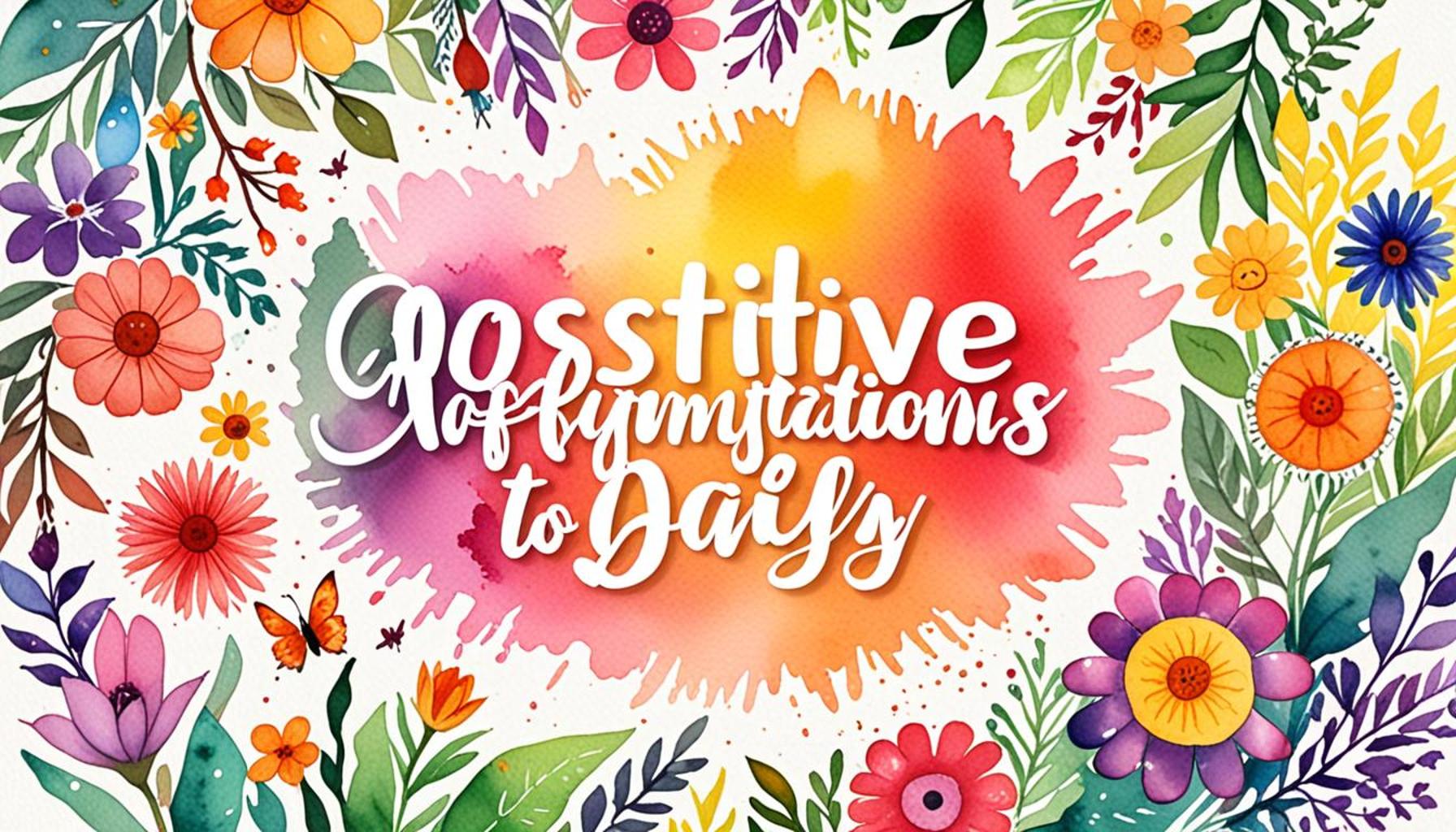Transform Limiting Beliefs Strategies for Positive Change

Breaking Free from Constraints
Many individuals carry limiting beliefs that serve as invisible barriers to their growth. These beliefs often stem from past experiences, societal norms, or negative self-talk. In Nigeria, common examples include thoughts like “I am not educated enough” or “Success is for others, not for me.” Such perceptions can stifle ambition, preventing individuals from pursuing opportunities that could lead to personal or professional advancement.
Understanding Limiting Beliefs
Limiting beliefs can manifest in various forms, significantly impacting one’s decision-making and overall outlook on life. For example, the fear of failure may cause an individual to shy away from taking calculated risks that could improve their career prospects. Many young Nigerians may feel disheartened by the competitive job market and think, “If I start a business, I will fail,” leading to missed opportunities for entrepreneurship.
Imposter syndrome, which is characterized by persistent doubts about one’s abilities, is another common limiting belief. A graduate may land a good job but constantly worry that they are not as competent as their colleagues, leading to anxiety and decreased job satisfaction. This self-doubt can inhibit individuals from seeking promotions or leadership roles.
Furthermore, a scarcity mindset breeds the assumption that opportunities are limited. In some Nigerian communities, this notion holds people back from collaborating or sharing resources, as they may believe that helping others diminishes their own chances of success. Recognizing these beliefs is the first step towards transformation, as it allows individuals to question their validity and confront their fears.
Strategies for Positive Change
Employing effective strategies can aid in transforming these harmful beliefs into catalysts for growth. One powerful technique is mindfulness, which involves becoming aware of one’s thoughts and emotions without judgment. Practicing mindfulness can help individuals identify when limiting beliefs arise, enabling them to challenge and reframe those thoughts effectively.

Affirmations play a vital role as well. Replacing negative self-talk with positive, empowering statements can gradually shift an individual’s mindset. For example, a person might say, “I am capable of achieving my goals,” to counter feelings of inadequacy. Consistent use of affirmations can build confidence and foster a sense of self-worth.
Another important strategy is goal setting. Establishing clear and achievable objectives can provide direction and motivation. For instance, a young professional in Nigeria could set a goal to acquire a new skill by attending workshops or online courses, which can enhance their employability.
As you explore these strategies, consider how they might apply to your own life. Whether you’re a student uncertain about your future or a professional contemplating a career change, recognizing and reframing your limiting beliefs can lead to profound personal transformation. The journey of breaking free from these constraints not only fosters personal growth but also enhances the pursuit of a more fulfilling and successful existence.
SEE ALSO: Click here to read another article
Unpacking the Power of Beliefs
Limiting beliefs often creep into our subconscious, subtly shaping our behaviors and decisions. These ingrained thoughts can influence a person’s confidence, ultimately determining what paths they are willing to explore. In Nigeria, the phrase “I’m not good enough” often resonates with many, particularly among youth seeking career opportunities. These thoughts can turn into self-fulfilling prophecies, leading to stagnation and frustration.
The journey to identifying these beliefs begins with self-reflection. Self-awareness is crucial for personal growth, as it allows individuals to recognize the thoughts that hinder their progress. Journaling can serve as an effective tool in this process. By writing down thoughts, individuals can identify patterns of negative thinking and begin addressing them systematically.
The Role of Cultural Influences
Cultural beliefs can often amplify limiting beliefs, particularly in a multi-ethnic society like Nigeria, where traditional values play a significant role in shaping perspectives. For instance, the idea that “money is the root of all evil” can lead to a distorted view of financial success, causing individuals to subconsciously sabotage their financial goals. This sentiment can deter capable entrepreneurs from pursuing lucrative ventures, reinforcing the cycle of poverty.
Moreover, societal expectations can impose version pressure. Young women, in particular, may feel constrained by the traditional belief that their primary role is within the home. This limitation can stifle aspirations for higher education or career advancement. Acknowledging such social pressures can empower individuals to challenge these norms and seek paths that resonate with their personal aspirations.
Strategies for Overcoming Limiting Beliefs
Transforming limiting beliefs into empowering ones might seem daunting, but several practical strategies can facilitate this change:
- Visualization: Picture yourself achieving your goals. Visualization helps internalize success, making it more accessible and less intimidating.
- Seek Support: Surround yourself with positive influences. Engaging with mentors or support groups can provide encouragement and guidance, helping to reinforce new belief systems.
- Education and Skill Development: Continuous learning can dismantle the belief that one is ‘not educated enough.’ By acquiring new skills, individuals can build confidence and broaden their horizons.
- Challenge Negative Thoughts: When negative thoughts arise, question their validity. Ask yourself, “Is there evidence to support this thought?” This can help distance you from these limiting beliefs and foster a more balanced perspective.
By integrating these strategies into daily life, individuals can gradually shift their mindset, enhancing their confidence and improving their prospects. As you embark on this path of transformation, remember that change takes time. Each small step contributes to a larger journey towards a more fulfilled and empowered version of yourself.
Transform Limiting Beliefs: Strategies for Positive Change
Transforming limiting beliefs can significantly enhance your life and relationships. By disrupting negative thought patterns, individuals can unlock their potential and foster resilience against obstacles. Here are some effective strategies that have shown great results in helping individuals overcome their limiting beliefs:
| Strategy | Benefits |
|---|---|
| Affirmations | Reinforces positive self-image and counters negative inner dialogue. |
| Visualization | Creates a mental picture of success, motivating individuals to pursue their goals. |
| Mindfulness | Enhances self-awareness and enables individuals to recognize and challenge limiting beliefs. |
| Journaling | Facilitates reflection on beliefs and promotes a clearer understanding of thoughts. |
Implementing these strategies can lead to profound transformations. Each method not only reshapes the way individuals view their challenges but also empowers them to take actionable steps towards achieving their aspirations. In a world where self-doubt can often hinder growth, these techniques serve as vital tools for fostering a positive mindset and sparking change.
SEE ALSO: Click here to read another article
Empowering Mindsets for Lasting Success
In the pursuit of positive change, it becomes essential to cultivate an environment where new beliefs can thrive. This means not only working on individual mindsets but also creating a supportive atmosphere within communities. In Nigeria, the power of collective effort can play a significant role in overcoming limiting beliefs. For example, community workshops that empower members through shared experiences can open up new pathways for personal and professional growth.
The Impact of Positive Affirmations
Another effective strategy for transforming limiting beliefs is the use of positive affirmations. Practicing daily affirmations can significantly shift one’s mindset. For instance, replacing “I cannot achieve my goals” with “I am capable and deserving of success” helps rewire the brain to foster a more positive self-image. These affirmations can be further amplified by vocalizing them in group settings or through social media, where encouragement from peers can enhance their effects.
Furthermore, regularly engaging in self-compassion plays a pivotal role in challenging deep-seated fears and doubts. It involves recognizing that everyone has limiting beliefs and experiences setbacks. By practicing self-compassion, individuals can create more kindness towards themselves, reducing the strong grip of negativity. This concept resonates deeply in cultures that emphasize communal success, as it promotes a collaborative spirit that expands possibilities.
Finding Inspiration Through Success Stories
In Nigeria, countless stories of individuals who have navigated the rough terrains of limiting beliefs serve as potent reminders that transformation is possible. Consider the success of local entrepreneurs who have launched initiatives despite initial skepticism. Such stories can be sources of inspiration, showcasing how resilience can triumph over ingrained doubts. Connecting with these success stories not only motivates individuals to strive for change but also reinforces the notion that they too can achieve similar feats.
Creating a Vision Board
A practical approach to fostering new beliefs involves the creation of a vision board. This dynamic tool allows individuals to visualize their dreams and aspirations, breaking down their goals into actionable steps. By assembling images, quotes, and symbols that resonate with their desired outcomes, individuals ignite their passion for positivity and encourage themselves to take steps toward achieving their ambitions. This tactile representation serves as a daily reminder that transformation is within reach.
Moreover, participation in group discussions or focus sessions related to personal growth can catalyze motivational energy. These platforms can also assist in addressing common limiting beliefs that people face in Nigeria, such as doubts related to formal education or socio-economic status. By sharing experiences, attendees can foster a sense of belonging and empowerment, encouraging one another to move beyond their limitations.
Embracing the Journey of Change
Transformative belief systems require an active commitment to change. By engaging with tools and strategies such as affirmations, vision boards, and community support, individuals can create a more robust framework for personal development. These tools not only dismantle limiting beliefs but also pave the way for greater confidence, enabling people to forge their paths. Embracing the journey of change means recognizing the strength within oneself and the resources available within the community, creating a ripple effect that encourages not just personal growth but collective advancement.
CHECK OUT: Click here to explore more
Conclusion: Embracing Change for a Brighter Future
In summation, transforming limiting beliefs into empowering narratives is not merely an individual endeavor but a collective journey towards **positive change**. The strategies discussed, such as the practice of positive affirmations, the creation of vision boards, and the power of community support, highlight practical pathways to dismantle ingrained doubts that often hinder progress.
By actively engaging in these methods, individuals can cultivate a sense of resilience and hope. The inspiring success stories from across Nigeria serve as testaments to what can be achieved when one dares to challenge societal norms and personal limitations. These narratives not only motivate but also reinforce the idea that transformation is attainable for all, regardless of their background or circumstances.
Furthermore, the influence of a supportive community cannot be overstated. By sharing experiences and fostering a culture of self-compassion, we can dismantle barriers to growth and inspire one another to strive for greatness. As we embark on this journey together, it is crucial to embrace the idea that every small step towards positive change contributes to a larger wave of collective advancement.
Therefore, let us engage with these transformational strategies and encourage a culture of empowerment that acknowledges the challenges while celebrating progress. The path to overcoming limiting beliefs is not a solitary venture; it is one that can lead to thriving communities ready to embrace a brighter, more successful future together.


